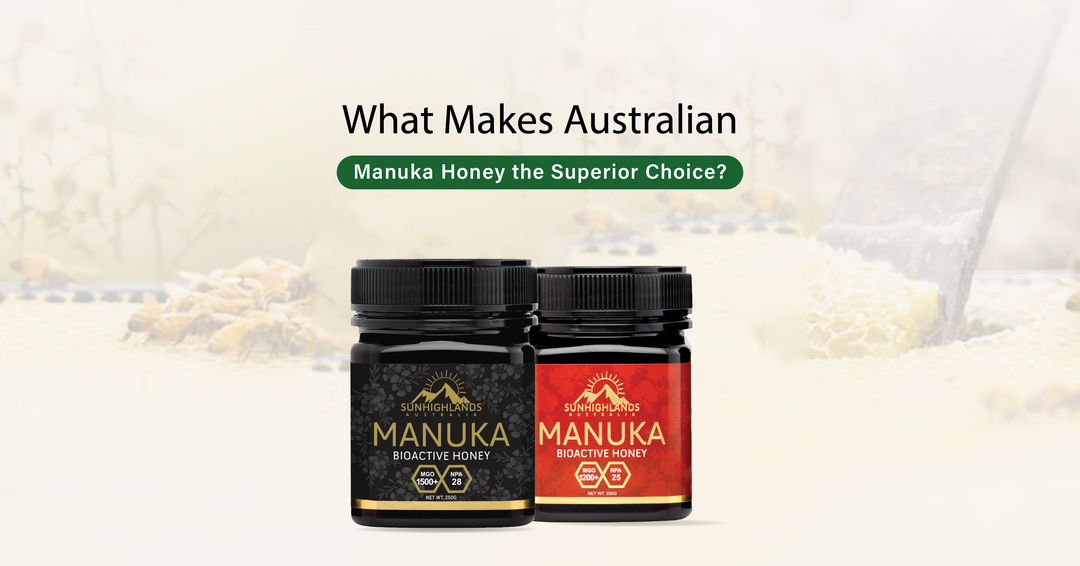Harnessing the Power of Manuka Honey to Combat Pseudomonas Infections

Pseudomonas infections pose a significant challenge in modern healthcare due to their resistance to many antibiotics. If you or a loved one are struggling with the relentless challenges of Pseudomonas, you're not alone.
Pseudomonas can be stubborn and resistant to many conventional treatments. However, nature often offers solutions where modern medicines fall short. One such natural remedy holding promise in combating this formidable foe is Manuka honey, renowned for its potent antimicrobial properties.
In this blog, we'll explore how Manuka honey can be effectively used to combat Pseudomonas infections and discuss best practices and considerations when choosing the right product.
Understanding Pseudomonas Infections
Pseudomonas aeruginosa is a common bacterium known for causing infections, especially in healthcare settings. It is notoriously difficult to treat due to its ability to develop resistance to multiple antibiotics over time.
This resistance makes Pseudomonas infections particularly difficult and frustrating for both patients and healthcare providers. Pseudomonas infections can range from mild skin infections to life-threatening conditions such as pneumonia and septicaemia.
The Role of Manuka Honey
This is where Manuka honey, derived from the nectar of the Manuka tree native to Australia, comes into play. It has gained recognition for its exceptional antimicrobial properties, attributed to the presence of methylglyoxal (MGO) and hydrogen peroxide, along with other bioactive compounds.
Studies have shown that Manuka honey exhibits broad-spectrum antimicrobial activity, making it a promising candidate for combating bacterial infections, including those caused by Pseudomonas.
How to Take Manuka Honey for Pseudomonas
- Topical Application: For localised infections such as wound infections or skin conditions caused by Pseudomonas, topical application of Manuka honey can work wonders. Cleanse the affected area with mild soap and water, then apply a generous layer of Manuka honey directly onto the wound or affected skin. Cover it with a sterile dressing to promote absorption and prevent contamination, allowing the honey to work its magic.
- Oral Consumption: In cases of internal infections or conditions like urinary tract infections (UTIs) caused by Pseudomonas, consuming Manuka honey orally can be beneficial. It is recommended to take a tablespoon of high-quality Manuka honey, preferably on an empty stomach in the morning. This allows the honey to exert its antimicrobial effects within the digestive tract, helping to combat the infection from within.
Choosing the Best Manuka Honey for Pseudomonas
When it comes to your health and well-being, you deserve the best. Not all Manuka honey products are created equal. To ensure effectiveness against Pseudomonas infections, consider the following factors when selecting a Manuka honey product:
- NPA (Non-Peroxide Activity) Rating: The NPA rating indicates the level of antibacterial potency in Manuka honey. Look for Manuka honey with an NPA rating of 10 or higher for maximum effectiveness against Pseudomonas infections.
- Methylglyoxal (MGO) Content: MGO is a key antimicrobial compound found in Manuka honey. Higher levels of MGO correspond to greater antibacterial and antimicrobial potency. Choose Manuka honey with a high MGO content, preferably above 250 mg/kg, for optimal results.
- Quality and Purity: Ensure that the Manuka honey you choose is authentic and sourced from reputable suppliers. Look for certifications such as UMF/NPA and MGO to guarantee the honey's quality and purity.
- Raw and Unprocessed: Opt for raw, unprocessed Manuka honey to preserve its natural enzymes and bioactive compounds, promising ultimate effectiveness against Pseudomonas infections. Processing methods such as heat and filtration can diminish the honey's antimicrobial properties.
- Medical-Grade Manuka Honey: Some manufacturers produce medical-grade Manuka honey specifically formulated for therapeutic use. These products undergo rigorous testing and quality control measures to ensure safety and efficacy.
Conclusion:
Manuka honey offers a ray of hope for combating Pseudomonas infections, thanks to its potent antimicrobial properties. Whether applied topically or consumed orally, Manuka honey can help alleviate symptoms and promote healing.
By incorporating high-quality Manuka honey into your routine with the appropriate NPA rating and MGO content, you are taking a proactive step towards combating Pseudomonas infections naturally and effectively. Individuals can harness the full potential of this remarkable remedy in the fight against Pseudomonas. Always consult with a healthcare professional for proper diagnosis and treatment recommendations, especially in cases of severe or systemic infections.





